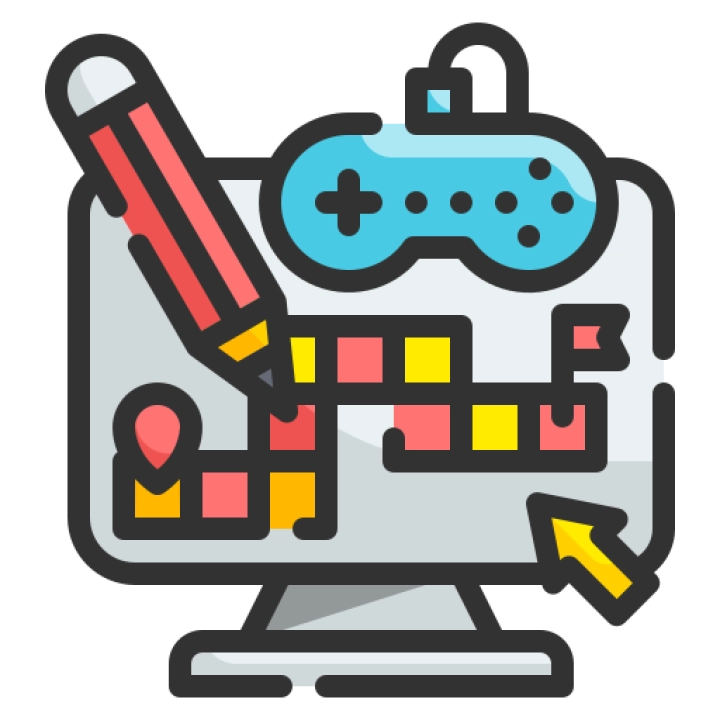Faculty: Graduate School of Natural and Applied Sciences
This major focuses on the creative and artistic aspects of video game design and interactive media. Students gain skills in game mechanics, narrative design, programming, arts, animation, and project management, preparing for careers in the gaming industry, interactive media, and related fields.
Learning Objectives:
- Understand the principles and mechanics of game design.
- Develop skills in narrative design and storytelling.
- Learn programming and scripting for game development.
- Explore art and animation techniques for game assets.
- Analyze trends in game design and player experiences.
- Develop project management and teamwork skills.
Main Curriculum:
- Introduction to Game Design - Overview of game design principles, industry trends, and development processes.
- Game Mechanics and Systems Design - Design game rules, mechanics, and systems to engage players.
- Narrative Design and Storytelling - Craft compelling narratives, characters, and dialogues for games.
- Programming for Game Development - Programming languages (such as C#, C++, and Python) for game functionalities.
- Game Arts and Animation - Create visual assets, animations, and user interfaces for games.
- Game Engines and Tools - Utilize game engines (e.g., Unity and Unreal Engine) and development tools.
- User Experience (UX) and User Interface (UI) Design - Design intuitive and immersive user experiences and interfaces.
- Project Management in Game Development - Manage game development projects, teams, and production lines.
- Practical/Application Training - Real-world experiences in game development settings, such as game studios, indie development teams, or related industries.
- Capstone Project - A comprehensive project applying game design skills, such as developing a complete game, designing a game prototype, or conducting a research study on game design.
Assessment Methods:
- Game design documents, mechanics and systems analyses, narrative design and storytelling tasks, programming and scripting assignments, art and animation portfolios, game engine and tool proficiency demonstrations, UX/UI design projects, project management plans, internship reports, capstone projects, group projects, and presentations.
Recommended Textbooks:
- "Introduction to Game Design" by various authors.
- "Game Mechanics and Systems Design" by various authors.
- "Narrative Design and Storytelling" by various authors.
- "Programming for Game Development" by various authors.
- "Game Arts and Animation" by various authors.
- "Game Engines and Tools" by various authors.
- "User Experience (UX) and User Interface (UI) Design" by various authors.
- "Project Management in Game Development" by various authors.
Prerequisites:
Basic knowledge of programming and art, and an interest in game design and development.
Duration of the Major:
Typically 4 years to earn a bachelor's degree.
Certification:
Although there are no specific certificates for game design, graduates may pursue specialized training or certifications in game engines (e.g., Unity certified developer, Unreal Engine certifications) or related technical skills.
Target Audience:
Aspiring game designers, game developers, narrative designers, game artists, game programmers, and professionals seeking careers in game studios, indie development teams, interactive media companies, and related fields. This major equips students with the creative and technical skills needed to excel in game design and development, supporting careers in various roles within the gaming and interactive media industries.

